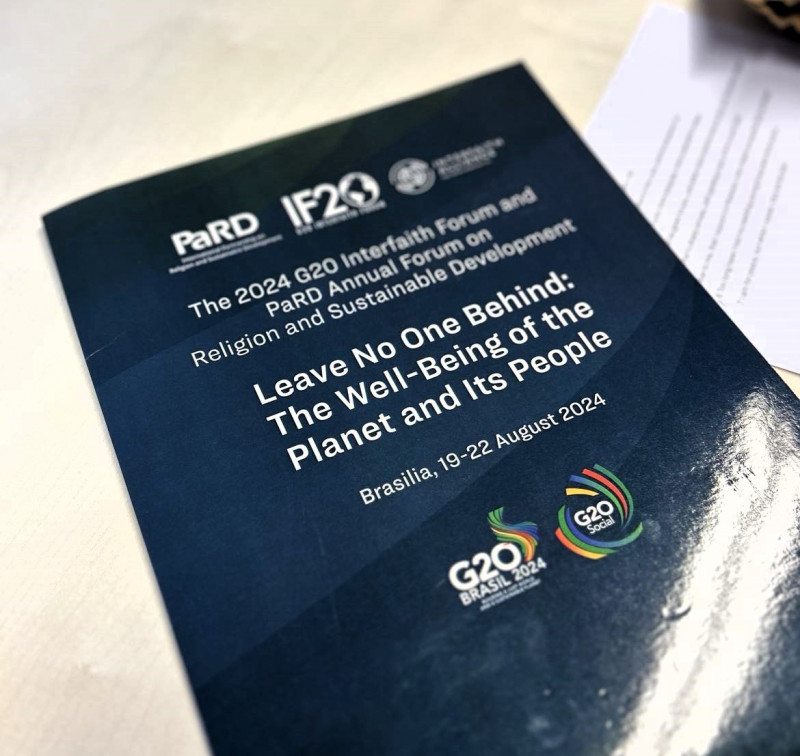
“Protecting sacred sites is not just about preserving history; it's about honouring the spiritual heritage that binds our communities together,” said H.E. Archbishop Nikitas of Thyateira and Great Britain, president of the Conference of European Churches (CEC). He contributed to discussions at the G20 Interfaith Forum and PaRD Annual Forum, which focused on the theme “Leave No One Behind: The Well-being of the Planet and its People” from 19 to 23 August in Brasilia.
“As we gather under the G20’s leadership in Brazil, we urge world leaders to recognise the profound significance of these sites in countries such as Ukraine, Israel-Palestine, Cyprus, Greece, Turkey, Nagorno-Karabakh (Artsakh), and Kosovo (1244). Religious sites are sanctuaries of faith, symbols of peace, and beacons of hope for millions. Ensuring their protection is essential to fostering global harmony and leaving a legacy of respect and reverence for future generations,” added the CEC president.
CEC’s initiative Pathways to Peace advocates for the protection of destroyed religious sites in Europe.
The G20 Interfaith Forum, held alongside Brazil’s presidency of the G20, emphasised the critical role of interfaith dialogue in shaping inclusive policies that address the needs of all communities, especially the most vulnerable.
The forum’s sessions focused on various issues, including poverty alleviation, climate justice, the protection of sacred places worldwide, gender equality, and refugee protection. Faith leaders from diverse traditions highlighted the moral imperative to ensure that economic and social policies do not exacerbate existing inequalities. Together, they called for a concerted effort to include marginalised communities in decision-making processes, emphasising that sustainable development can only be achieved when all voices are heard.
The G20 Interfaith Forum urged G20 leaders to adopt policies that prioritise human dignity, environmental stewardship, and social justice. Faith leaders stressed that economic growth must go hand in hand with the protection of human rights and the environment for all.
Brazil, with its rich cultural and religious diversity, was recognised as a fitting host for these discussions. Participants called on the Brazilian G20 presidency to champion interfaith dialogue as a means of achieving lasting peace and stability, both regionally and globally.